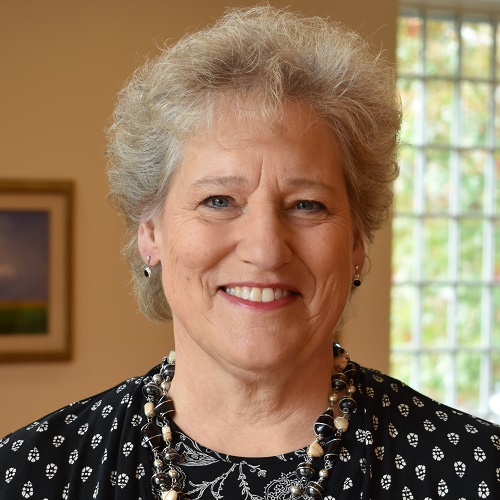Commentary on 1 Corinthians 1:1-9
If preachers follow the Revised Common Lectionary religiously, they will encounter this passage twice: this week and on the first Sunday of Advent in Year B. If preachers pass up the Year B opportunity to preach from the Advent themes represented in the Old Testament and Gospel lessons, they will see today’s passage once in three years, the last time, therefore, being January 2020. Furthermore, the second through the fifth Sundays after Epiphany offer one of the few four-week continuous readings from the epistles, I Corinthians 1:1-2:12 (13-16).
What is Paul doing in these two chapters that testify to what God is doing in the world?
Four themes are offered for consideration as a sermon series; preachers might focus on any one or two of the themes or use the four consecutively on the second-fifth Sundays after Epiphany.
Called to be saints together
How is Christ made manifest in our midst when we are called together with those who practice the faith differently, or who make theological claims we strongly disagree with, or live out their faith in ways that offend us? The last three years have caused and revealed divisions not only in the body politic, but in the church as well. Where can we begin to have conversation and build bridges with other expressions of the Christian faith in order to maintain the unity of the Spirit in the bond of peace (Ephesians 4:3)?
It is not to one cell in Corinth in the body of Christ that Paul addresses this letter. It is together with all those in every time and place who call on the name of the Lord Jesus, both their Lord and ours. In traditional use of the third person plural pronoun, an “us-them,” “ours-their” dynamic is often created. Paul uses “their Lord” to unite us, not divide us, with all those who call upon the name of the Lord Jesus. This puts us squarely in the same boat as those with whom we vehemently disagree. Disagreement leads to fear, specifically fear of losing one’s way of life. We hang onto tiny churches that are no longer viable, and we cling to the dominance the Christian, if not Protestant, tradition once had in American culture. We confuse, if not blend, Christian faith and discipleship with politics, we vote our fears, we tire of clinging to a way of life that is slipping from our grasp. We attribute our human limitations to God. And we talk about “we” here because “we” cannot separate ourselves from anyone else in the body of Christ. This passage refutes our fear of one another. We are them.
Together we lack no spiritual gift
That we are called together with all those in every time and place makes clear it is not simply one cell in the body of Christ that has received every gift needed. We need other cells not simply in our town or our tradition to fulfill the ministry of Christ, that we might be found blameless on the day of his coming.
Beyond the obvious difference of time and place, most of our churches differ from those in Corinth in another important way. We typically do not compete for whose spiritual gift is greater or more important. That is not to say we do not compete. We do. But it isn’t over gifts of the Spirit. Many of our churches, people in the “pews,” and those who never cross the threshold of the church need to be encouraged that they have received gifts of the Spirit the body needs to fulfill the ministry. Rather than correcting pride in spiritual gifts, we may need to identify and encourage the gifts of our people that are needed by the body of Christ. If we identify and encourage the gifts given to everyone called by God, perhaps our spiritual fatigue will be relieved.
It’s not about you
Even if we have identified our spiritual gifts and exercise them faithfully, we cannot control outcomes. We cannot control world events or even the gospel message, but it is tempting to think that if we can maintain control over the little things, perhaps we can determine the outcome of the bigger things: church growth or congregational stability or financial security. We can apply our spiritual gifts to outcomes. The focus becomes we ourselves, our congregational life. Perhaps we can control that.
On a recent visit to my aged parents in Illinois, a scrolling bank sign caught my attention. Driving back and forth between my parents’ two living facilities, more memory care for my father and more physical assistance for my mother, I passed this bank multiple times a day. Time, temperature, and then this message, “you are in control.” Time, temperature, you are in control. I began to feel mocked. I felt control over nothing but an effort to safely handle my car. You are in control. I began to feel my parents were being mocked. Both experiencing that slow decline that testifies to the reality that death is the last enemy to be conquered and no one dies from good health, they were not in control. Once masters of logistics, detail-oriented efficiency experts, my parents now relied on others to do less well the things they used to do exceedingly well. And in that slow decline, we were unable to control for them the pop-up fear of the future that crept in to defy faith.
The theme that it is not about “you” (or me or us) is established here as the focus is on the gifts given by God to do the ministry of Christ until he returns. This means we do not have to fear failure; after all, it’s not about us.
God is faithful
Whatever faithfulness we manifest is simply an expression of the faithfulness of the God who called us, who saved and sanctified us, who enriched us with gifts of the Spirit, who strengthens us, who binds us together. God is faithful.
This passage refutes our fear, fatigue, and failings. The unmistakable overarching theme is the faithfulness of God not only to the Christians in Corinth, but to all those who, in every time and place, call upon the name of the Lord Jesus Christ.


January 15, 2023